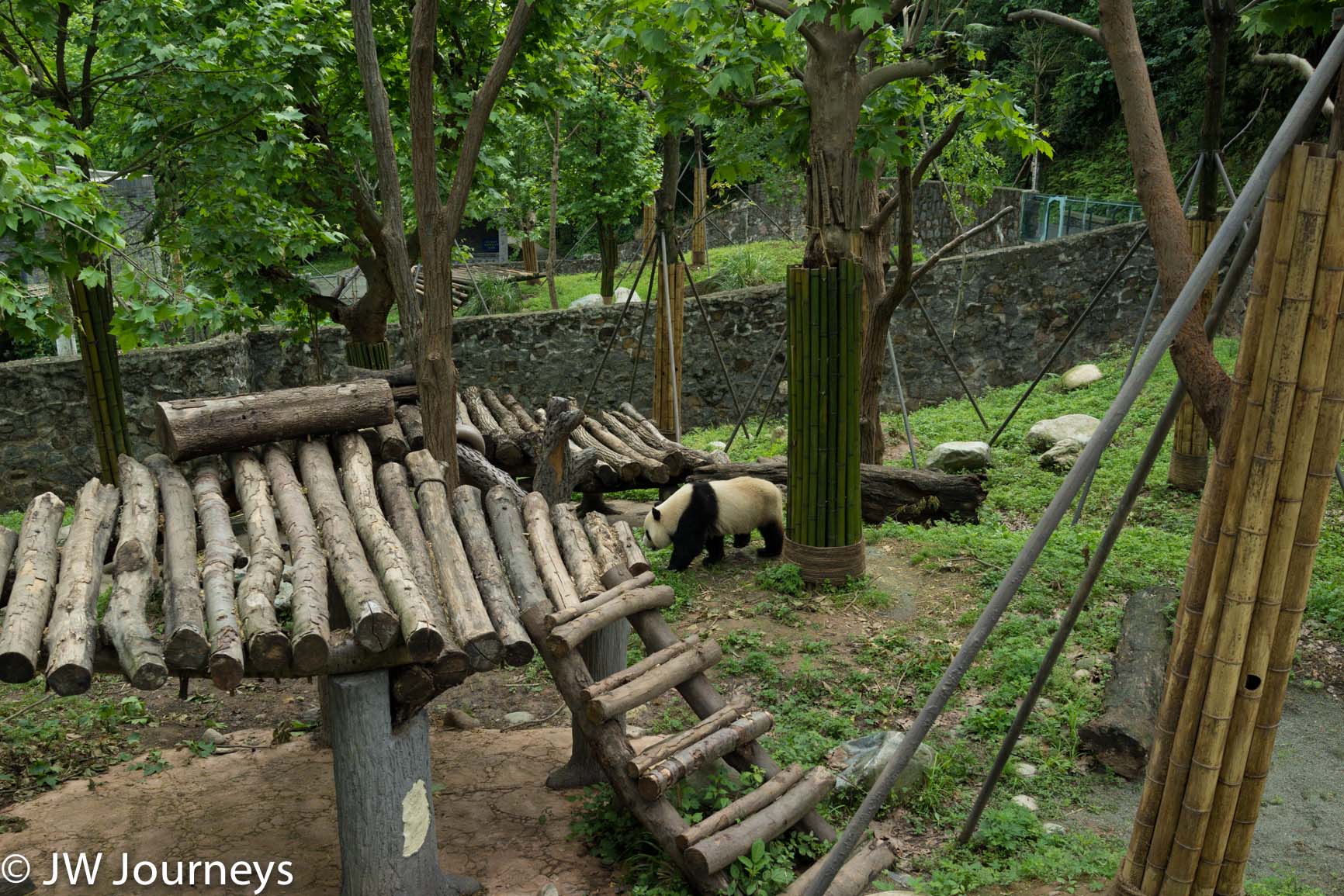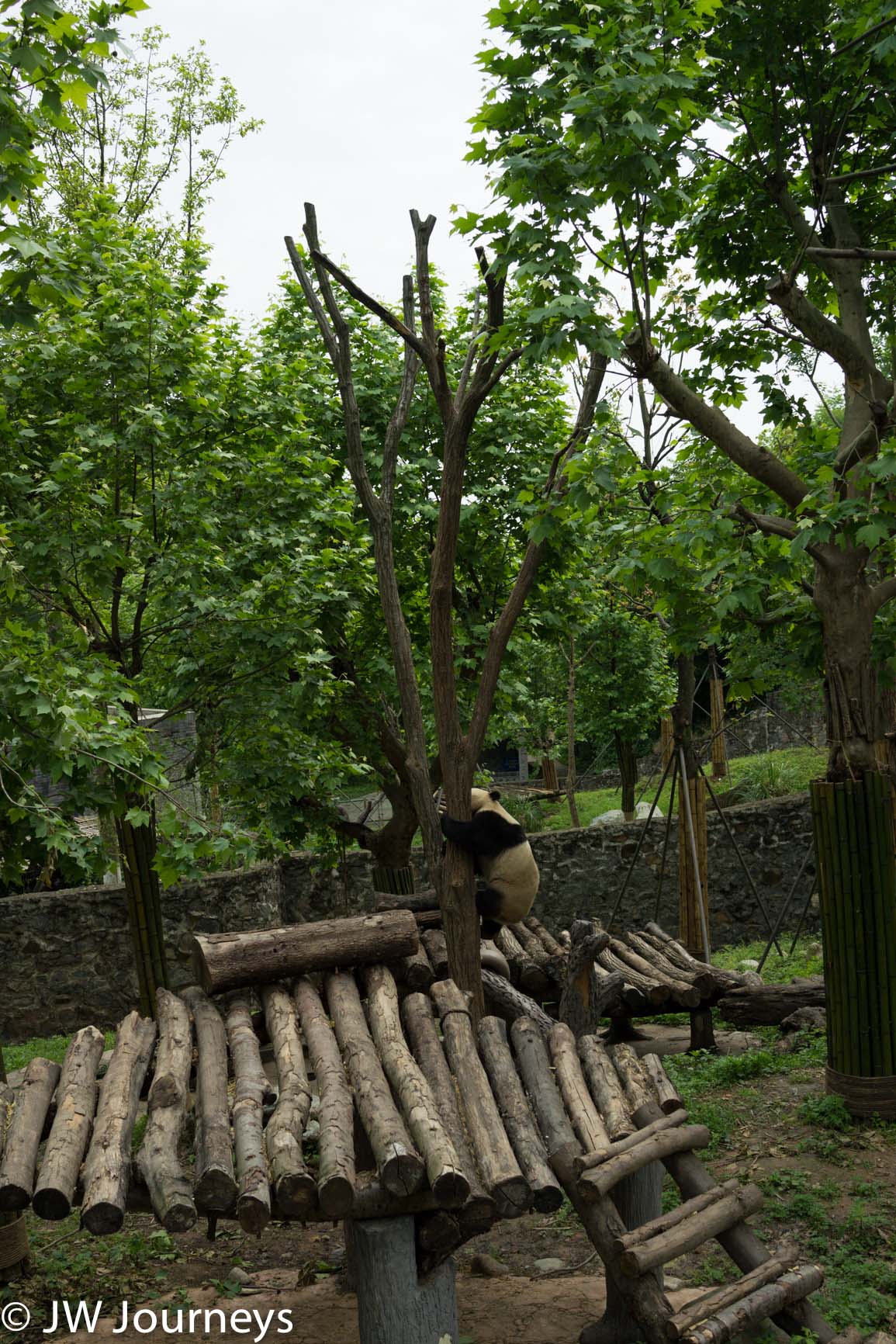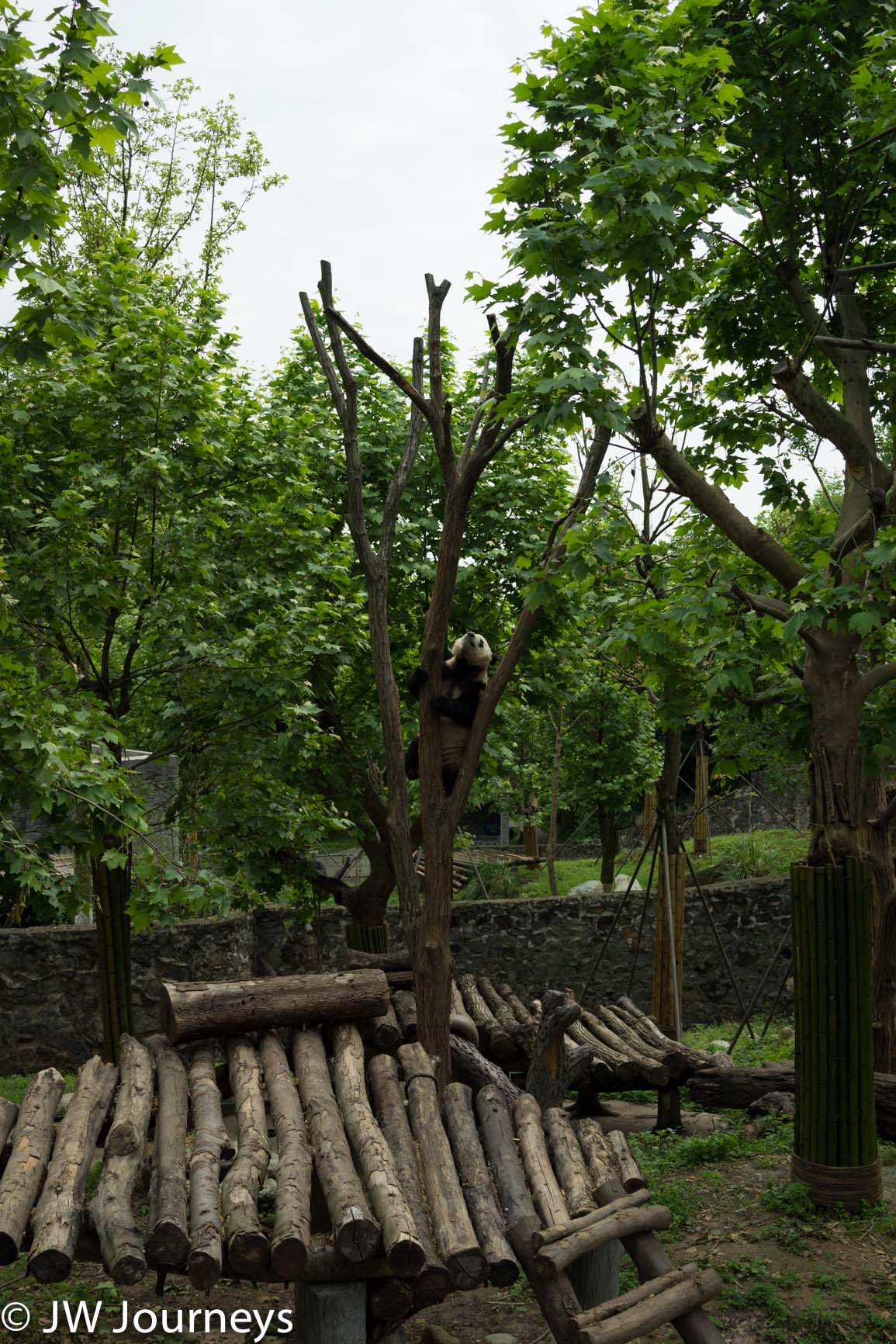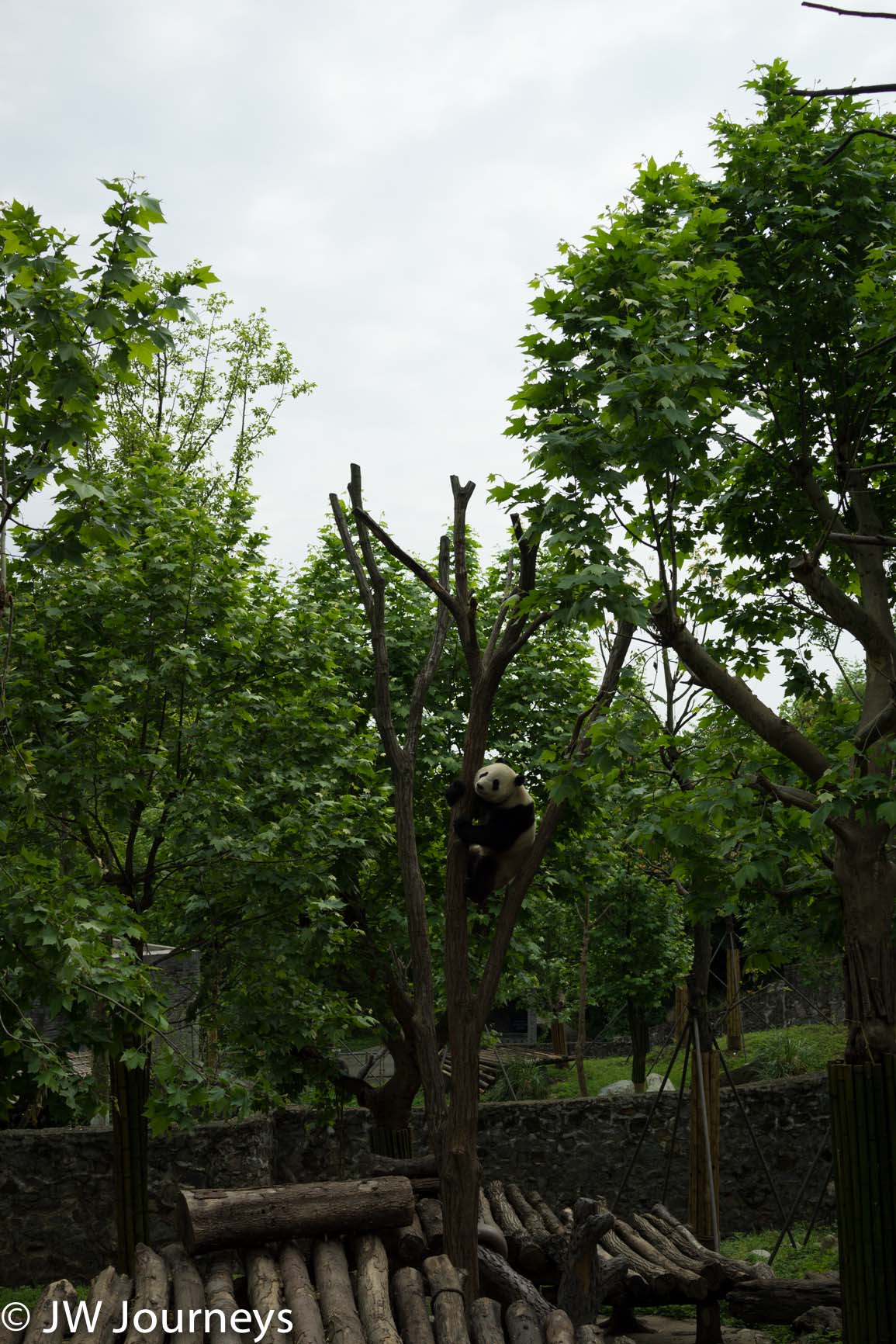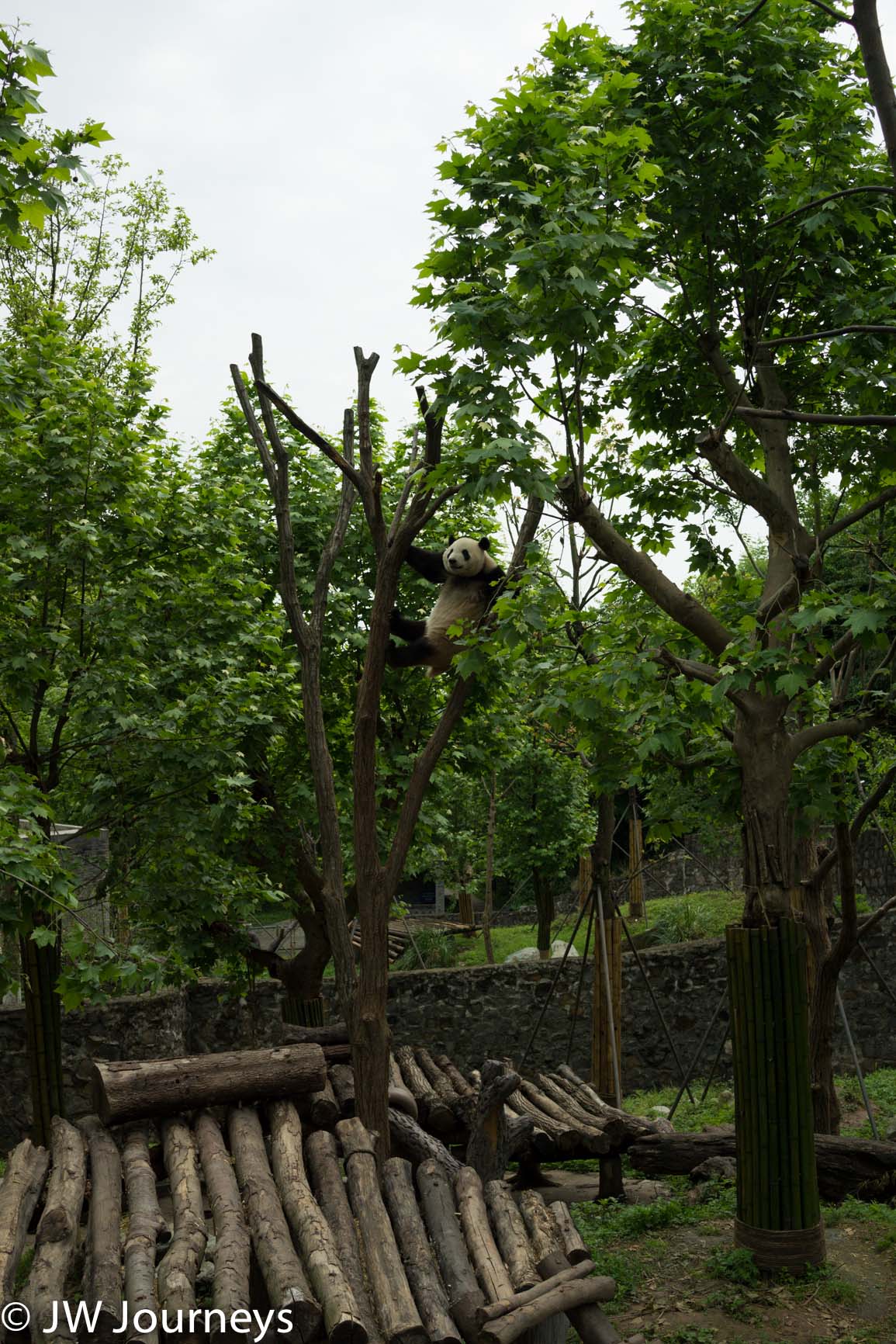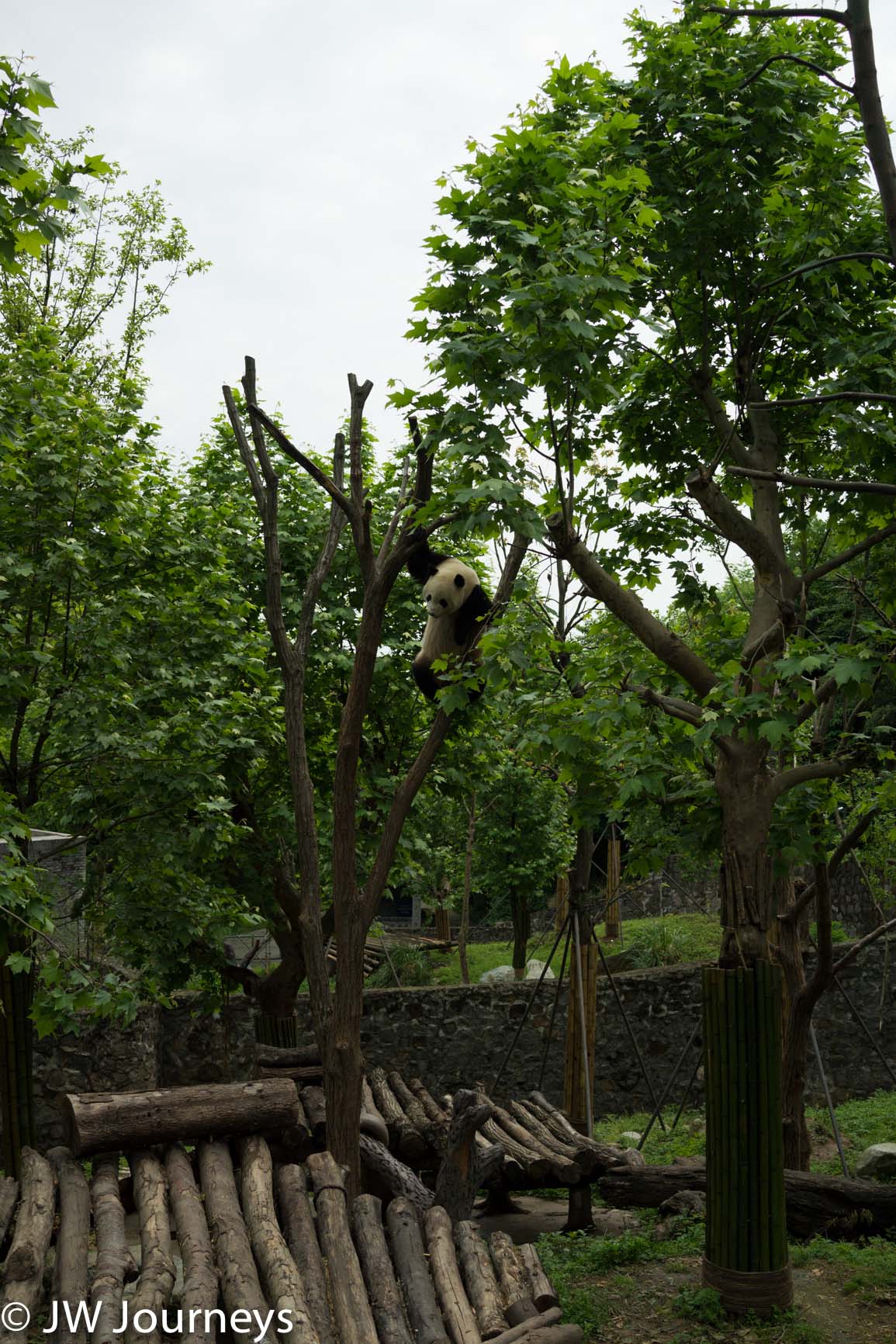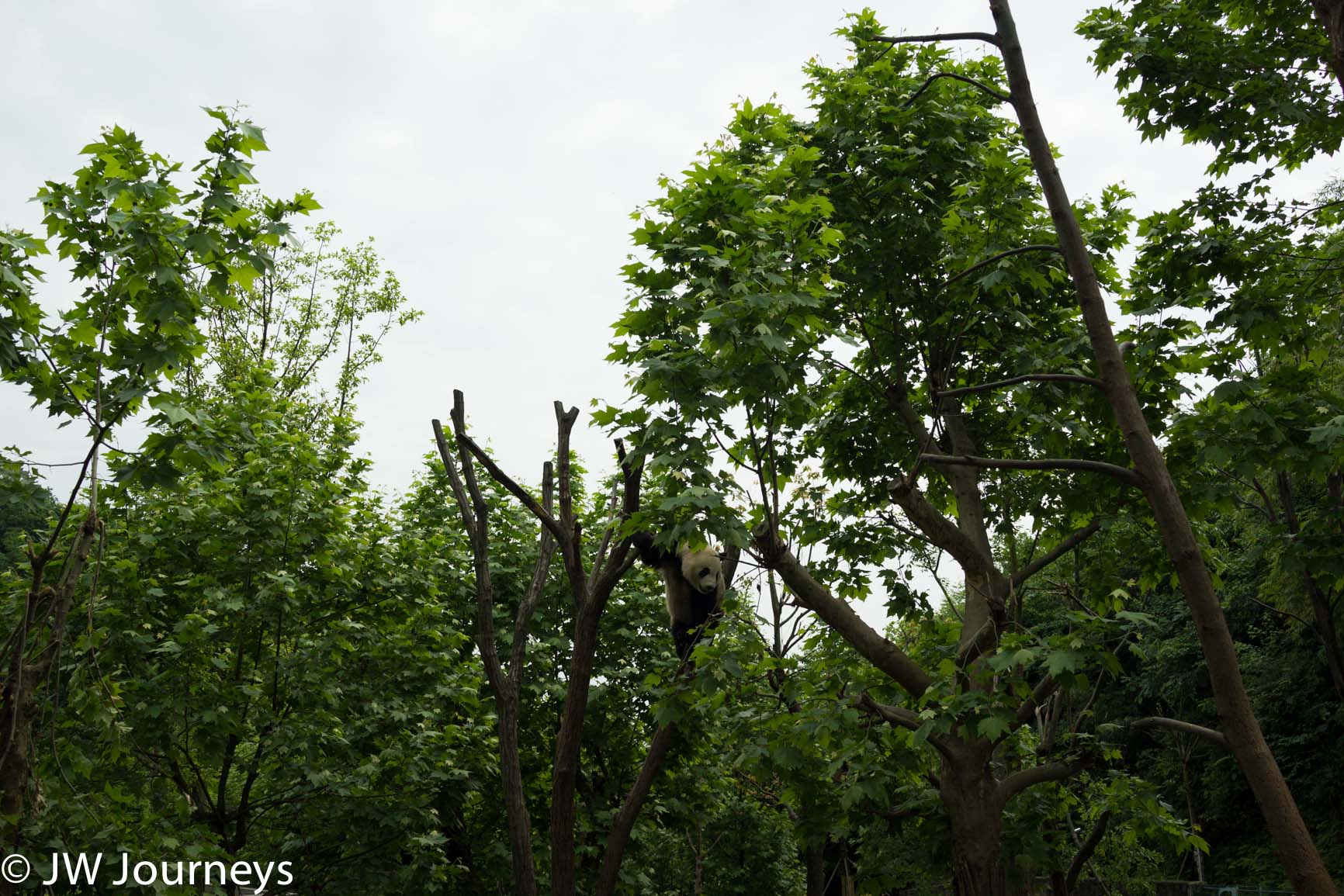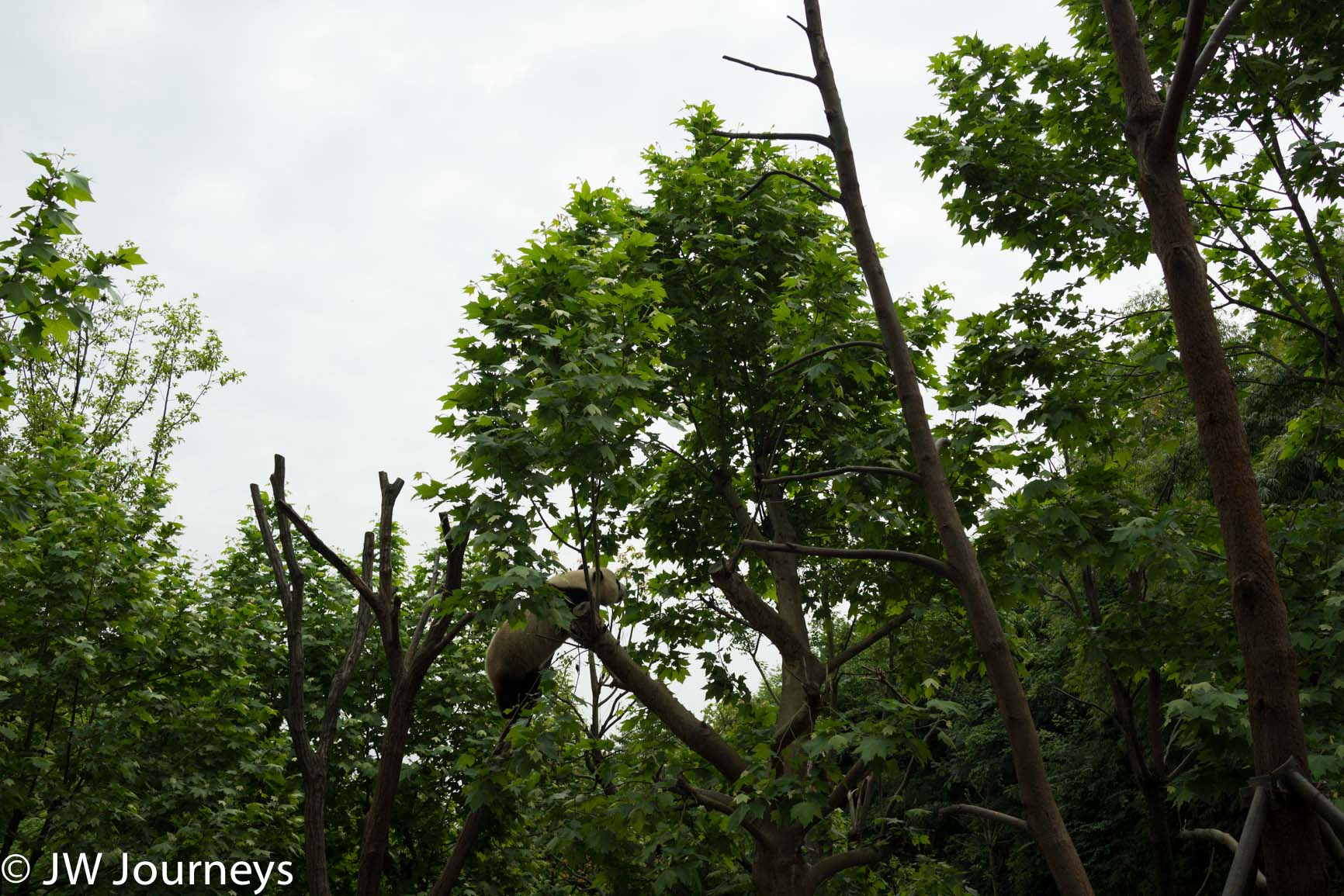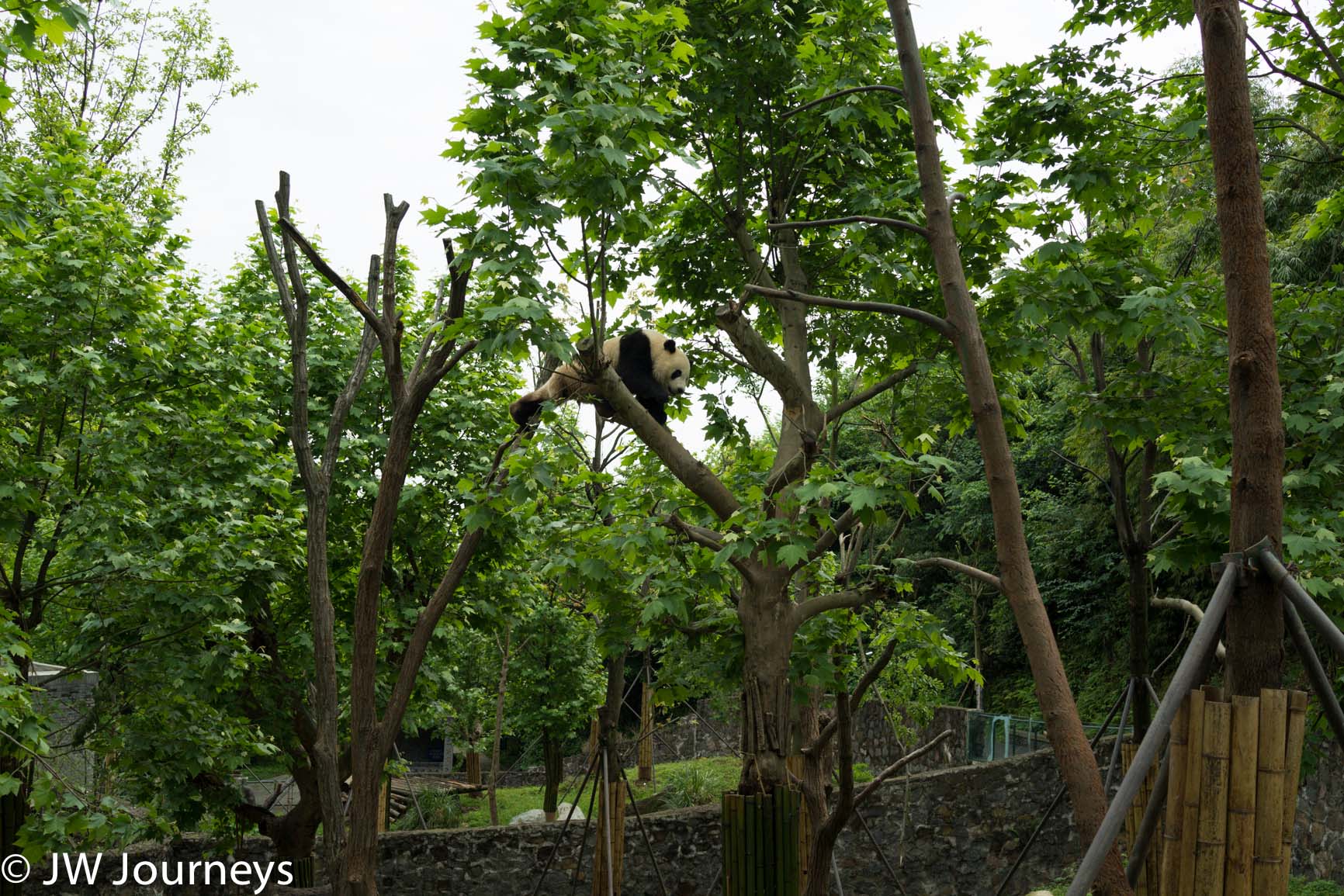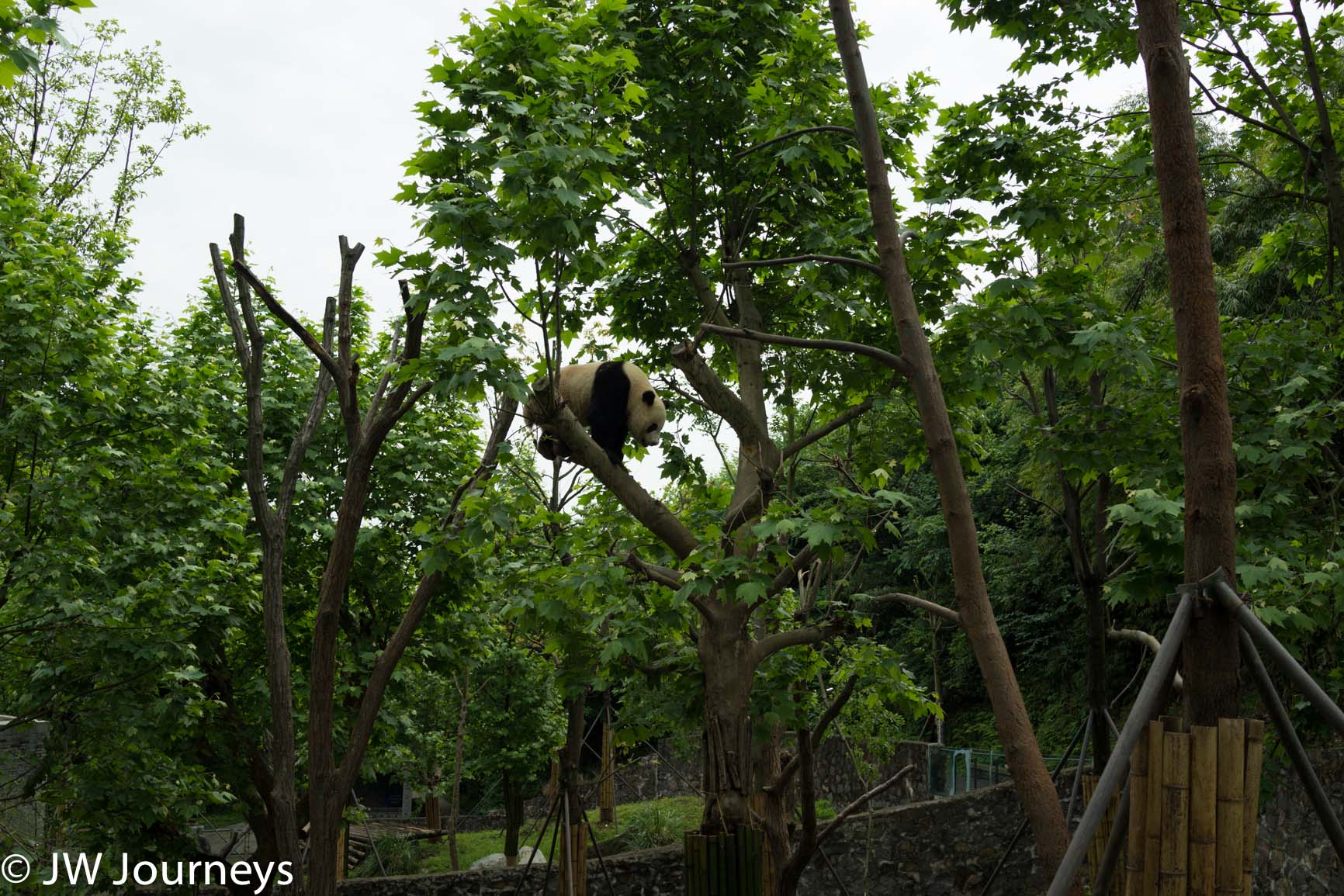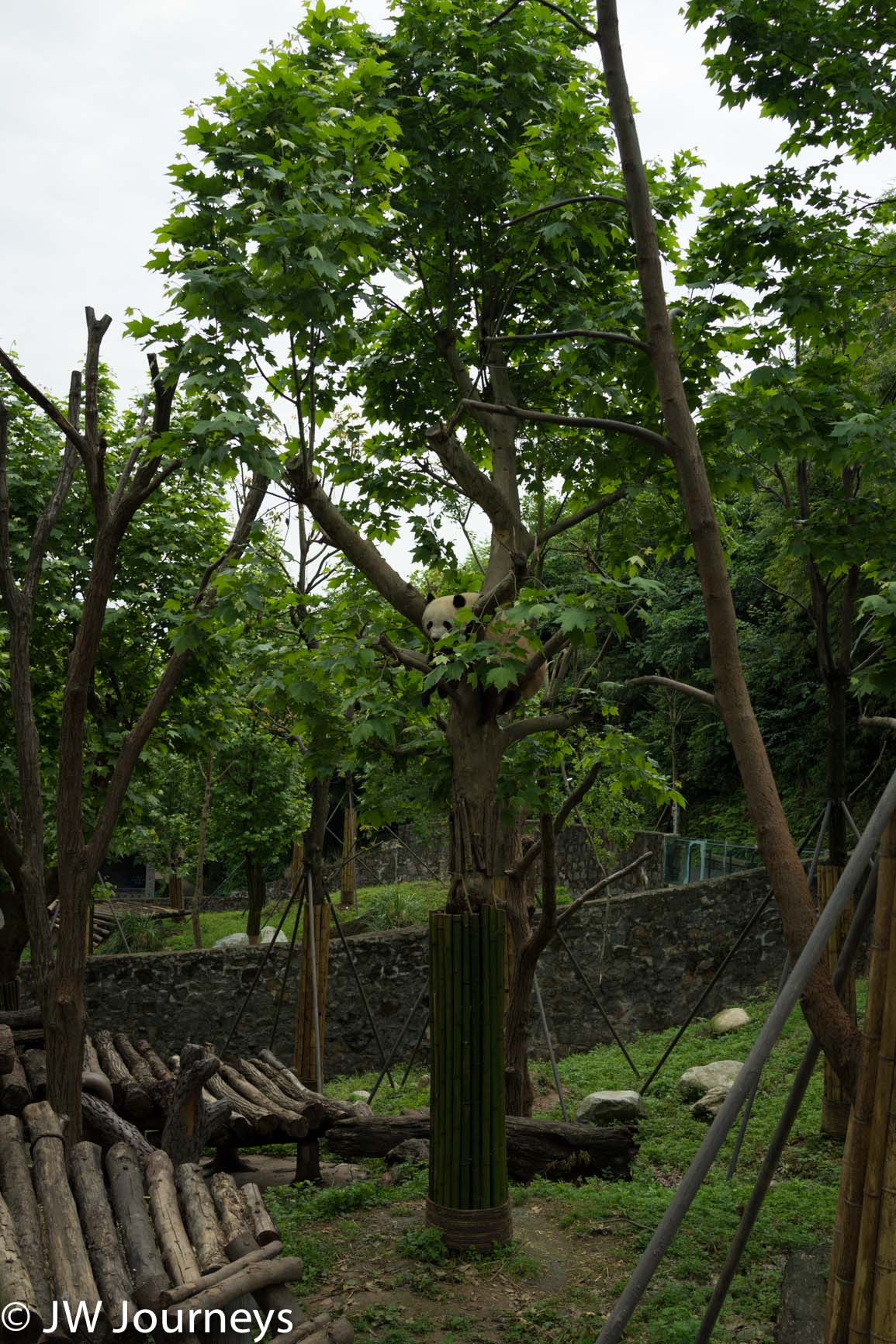Panda conservatory Du Jiang Yan
Panda conservatory Du Jiang Yan surrounding
Panda conservatory Du Jiang Yan entrance
Panda conservatory Du Jiang Yan Panda
Located in the beautiful foothills of Qin Cheng mountain, this conservatory covers 506,666 square meters and covers six main areas:
panda rescue and quarantine area
panda disease control, prevention and research area
panda rehabilitation, training and feeding area
public reception and education area
natural vegetation area
office and logistics services area
Panda quarantine area is for prepping pandas before they are sent abroad as ambassadors and come back to this facility to adapt to their natural habitat when they return.
Panda conservatory Du Jiang Yan panda from Washington DC
Panda conservatory Du Jiang Yan entrance and bamboo
Another key goal of this facility is to help pandas adapt into the wilderness. When a panda in captivity is selected by genetic traits to help improve the genes of wild pandas, the offsprings are placed in a special program where they are never in contact with humans. Zoo keepers wear panda suit and apply fecal material on the suit to mimic panda scent. These babies are placed in enclosures where they have to find their own food and once they reach maturity around 2.5 years, they are released into the wild with GPS collars.
Pandas are very particular about their living conditions, they only drink clear odorless running water. Each enclosure is filled with running water sourced from natural streams around Qin Cheng mountain.
Panda conservatory Du Jiang Yan freshwater stream
Similarly, wild Pandas with superb genes are brought in to help improve the genetic pool of the pandas in captivity. One hero dad is Pan Pan with at least 130 + known offsprings. Pandas in the wild on average live to 19, Pan Pan lived for 31 years and passed away at this facility.
Panda conservatory Du Jiang Yan hero dad Pan Pan
Panda food
This is the type of bamboo that Pandas feed on, they are planted along the entrance way. The tender shoots that sprout from the ground are favourites. They also eat meat in the wild but meat is less than 1% of their diet.
Panda conservatory Du Jiang Yan bamboo shoots
An adult panda consumes around 30 kilograms of bamboo a day. The calories from bamboos are extremely low and they are very picky, only eating the best tasting parts.
They eat all parts of the bamboo plant from the leaves to the stems to the shoots. Their favourite part is the bamboo shoots. Zookeepers help pandas break up hard bamboo to minimize wear and tear of the teeth. Pandas on average live to 19 in the wilderness and up to 30 in captivity and remarkably, they have even wear and tear on both sides of their teeth. Most of the time you can see the panda holding food in both left and right hand, rotating the usage of both sides.
Panda conservatory Du Jiang Yan bamboo
Panda conservatory Du Jiang Yan panda feeding on pre broken bamboo
Many of the trees have bamboo covered around them to protect the pandas from peeling the bark. There are also one or two trees left for them to climb. Yes, they are actually quite nimble climbers.
Mom and cub
Baby pandas spend most of the day on top of a tree as it is harder for natural predators such as leopards and wolves from poaching the panda babies. They usually come down at night to nurse with the mother. This is how they spend most of their day, lying on a tree. This baby is only 6 months old, it just played in the mud the night before and also has a nickname mud ball.
Panda conservatory Du Jiang Yan cub mudball on the tree
Panda conservatory Du Jiang Yan mother guarding and eating on bottom
Austrian PM recently visited the twins Fu Feng and Fu Ban born in Vienna zoo.
Panda conservatory Du Jiang Yan austrian born twin
Panda celebrities & impregnation
Mei mei has a lot of fans around the world, every October, hundreds of fans come and celebrate with Mei mei. She is given an ice block with carrots and fruits and Mei Mei breaks the ice and cools off with the frozen treats. She is also famous as she pretends to be pregnant. As it is very hard to tell if pandas are conceiving, when Mei Mei starts hugging a rock, zookeepers puts her into air conditioned rooms and give her more fruits such as apples as nutrition. Pandas learn and pretend they are pregnant to get the better treatment, quite a smart move.
Panda conservatory Du Jiang Yan panda Mei Mei
Panda conservatory Du Jiang Yan mountains
Transportation from Chengdu
High Speed Train in Chengdu Railway Station and get off at Mt. Qingcheng Railway Station. Then take bus line 102 to Xiongmao Jikong Zhongxin and you will see the base. You need to bring your passport to purchase the high speed train tickets
Bus North City Bus Station, Airport Bus Station, or Xinnanmen Bus Station to Dujiangyan. Then, take bus line 102 to Xiongmao Jikong Zhongxin and walk
Tips
come early as Pandas are more active in the morning between 8-10 and they usually sleep after 11
take the tram if you are traveling with kids, there are lots of uphill to walk
Entrance Fee
CNY 58; CNY 29 for children between 1.3 - 1.5 meters; Free for children under 1.3m
Opening Hours 08:30 – 17:00
In Baidu or GaoDe maps, search for
中国大熊猫保护研究中心都江堰基地
成都市都江堰市高尔夫大街与N64县道交叉口西北150米











